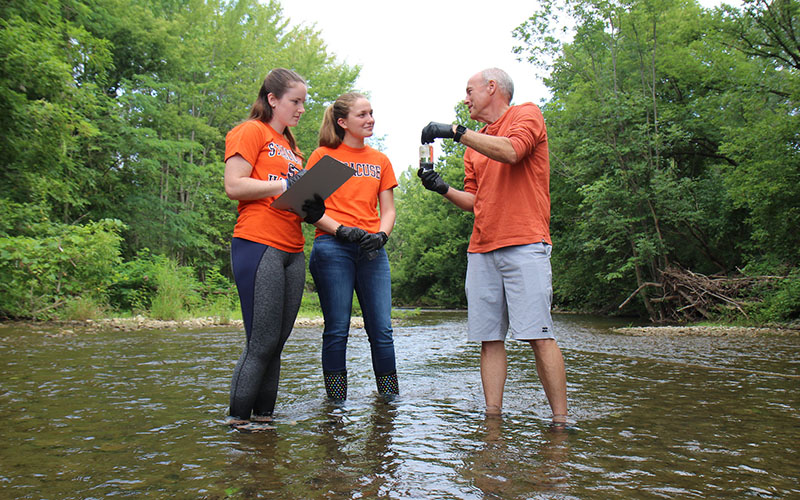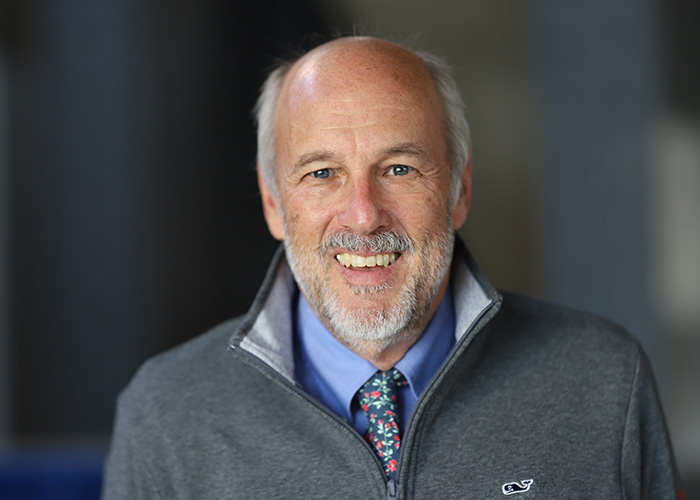
Civil and Environmental Engineering Professor Charles Driscoll has been selected to receive the 2023 Athalie Richardson Irvine Clarke Prize for Outstanding Achievement in Water Science and Technology from the National Water Research Institute. Driscoll is the University and Distinguished Professor of Environmental Systems Engineering in College of Engineering and Computer Science.
The Clarke Prize is considered one of the most prestigious awards pertaining to water science. It is awarded to thought leaders in water research, science, technology, or policy in the United States. Past honorees have included some of the most significant figures in civil and environmental engineering; the water, biological, physical, chemical, health, and political sciences; and public planning and policy.
Driscoll’s research largely involves characterization and quantifying the impacts of air pollution, such as acid rain and mercury, changing climate, and land and water disturbances on the structure and function of ecosystems, and pathways of ecosystem recovery. Much of his work has focused on forests and associated aquatic resources, including long-term studies at the Hubbard Brook Experimental Forest, NH and the Huntington Forest in the Adirondacks, NY. Recent work has included strategies for the decarbonization of sectors and achieving net zero greenhouse gas emissions.

Over the past 40 years, Driscoll has advanced new analytical techniques, established and maintained long-term measurements and experiments, and developed a series of research and predictive models that simulate transformations of major chemical elements in forest vegetation, soil and surface waters in response to air pollution, climate and land disturbance. Beyond theory, he is interested in testing ‘in situ’ strategies to reverse the damaging effects of acid rain and mercury contamination, eutrophication, urbanization, and climate change. Driscoll has testified at US Congressional and state legislative committee hearings, and provided briefings to government agencies, industry and stakeholder groups on environmental issues. He has served on local, national and international committees pertaining to environmental management and policy.
Driscoll will receive the award and give a lecture in Irvine, California, on October 21, 2023. For information about attending the event, fill out the form on the Clarke Prize page.

